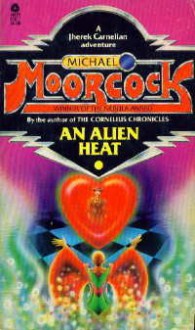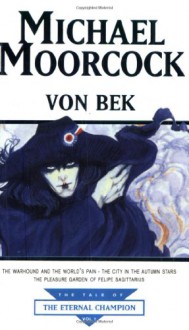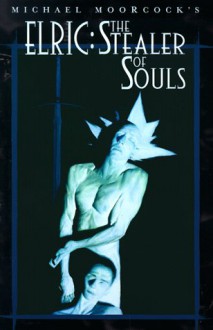
As a writer, it's hard for me to imagine how people can just keep writing the same thing, over and over--just providing slight variations on the same plot, characters, and setting, where the only thing that changes are the names. At that point, it's less a creative endeavor than the symptom of a neurosis: an obsessive need to recreate the same familiar pattern, over and over, in hopes that it will free you--and truthfully, I can think of few better ways to murder creativity than to write in this way.
Of course, we writers have certain interests and concerns that are going to crop up again and again, our favored themes, whether it's PKD's paranoid uncertainty of self or Le Guin's mutual cultural incomprehensibility, but as long as we keep finding different angles of approach, different ways to explore these themes, then we're not just treading water.
Of course, I know that many writers do it to get paid, and that in any field, after years of working your way up with fresh ideas and hard work, it can be tempting to sit on your laurels and stop really trying, just letting the paycheques come in--hell, plenty of folks end up at that point without ever having had a fresh idea in their lives. I mean, I've written ten thousand words in a day before, so if I wanted to pump out a generic fantasy novel every week, I'm certainly physically capable of doing so--it's the mental aspect that prevents me.
Not just the fact that I can't stand the idea of filling the world with more generic crap (which I can't), but the need to completely turn off my brain and not care at all about what I've made--and that's part of what makes Moorcock interesting, is that he is clearly capable of not being critical of himself. He has a reputation in the field of being able to turn out a short story faster than anyone else, and I have sometimes gotten the impression from various works of his that his pen was outstripping his thoughts--because he has produced works like Corum, which is more or less a rewrite of Elric with slightly duller characters and slightly weirder cosmology--but then he comes along and writes something like Gloriana, or An Alien Heat.
It's as if you took a writer as flat (though intriguingly madcap) as E.R. Burroughs and told me that he'd tried his hand at something in the style of Conrad and Ford's The Inheritors--it's such a complete change in voice and approach. Indeed, Moorcock's book has much in common with that tale of profound intelligences lost in the stream of time, the past and future colonizing and changing one another in unpredictable, unexpected ways.
As with Gloriana, Moorcock is working in a completely different voice here, a different tone and pacing. While in Corum, the romance may be central, it is perfunctory, accomplished in a moment, without bothering to delve introspectively to shore up its foundations--no real depth of feeling is ever produced. Yet here, the romance is the plot, is the conflict, drawn out over the length of the series, the back and forth of it, the inner turmoil of it all are more Darcy of Pemberly than Carter of Mars.
Instead of revolving around a series of cosmic villains, as in Elric, it is a story built upon the decisions and feelings of its characters, built from the inside out instead of imposing some artificial external conflict upon the characters to motivate them--and the former method is always going to seem more personal, more vital, and more perilous to the reader, even when the stakes of the conflict are much lower.
Indeed, in terms of sci fi tropes with farce, Moorcock seems to be laying out a prototype for one of my favorite series: The Hitchhiker's Guide to the Galaxy. Indeed, in the third book, when Moorcock's characters are trapped in the beginning of Earth's history, the parallels are almost too remarkable to be coincidence.
However, Moorcock does not quite have the precision necessary for a well-turned farce, as Wodehouse so often demonstrated, where the timing and rhythm of the scenes must be constructed with great care in order for them to work like the well-oiled machines they are. As such, in his pointed satire Adams ends up perfecting the form that Moorcock laid out--as is so often the case with his grand and intriguing but somewhat rough ideas.
However, An Alien Heat does share some shortcomings with works like Corum--quite literally, in that the exceedingly strange and imaginative world that he sets up for us is populated with characters who are all too mundane. In a world that is not only post-scarcity, but in which people have an ability to reshape the world to their liking beyond the wildest dreams of virtual reality, it seems odd that the characters would stick so closely to modern conceptions of identity.
For example, if a person can change their gender at will, or negate it entirely, or invent a new one, you aren't going to see the same old gender roles continue on as if nothing has changed. In a world where physical identity and appearance are completely fluid, you would expect peoples views of themselves to be similarly mutable.
Likewise, in a world where people can create anything with a thought, things like gold and gems would no longer retain the status rarity affords them currently--indeed, Moorcock often touches upon the fact that really, the only thing that produces value in his world is novelty, and yet he does not always succeed in demonstrating this effectively in his actual descriptions.
There are certainly good touches--that once we have all we want, things like depression or moroseness become interesting as poses, as markers of difference for their own sake, even when they aren't necessary--precisely because they aren't--but he might have done much more.
Indeed, one can also see the effect the work has had on another great writer who took the ideas and ran with them: Moorcock's protege M. John Harrison, who in his Viriconium series does begin to explore what a world of such profound difference might look like, where things like reality and identity begin to lose their meaning, and cohesion in the face of an ever-shifting world in which very little can be taken for granted. Once again, in the third book, when Moorcock gives us his hallucinatory cities, intelligent entities dying and going mad out in the wilderness, where most folks are happy to leave them alone, though some are drawn in by curiosity, we see a blueprint for the world that Harrison will later present us.
I do think that this book ends a chapter too late--that the conclusion Moorcock gives us originally produces an intriguing tale along the lines of Kafka, almost an inversion of Bierce's classic Occurrence at Owl Creek Bridge. As it is, Moorcock gives us a denouement which is altogether too tidy and easy, wrapping everything up and explaining it away, which I think would have made a much better opening to the next book.
Then again, perhaps his mainstream sci fi publishers were not ready for that sort of book--just as they weren't ready for Harrison, and put a Burroughs cover on his Kafka story. In any case, while the next book in the series is a bit of a lull, giving us much of the same, over again, the third book does much more with the setting and characters--even if the conclusion is a bit tacked-on.
Overall, the vision Moorcock gives us here is a testament to his creativity--he does not stick to just one story, or just one kind of world, even when his worlds are all interconnected, he still manages to give each one its own tone and voice, and second only to his masterwork, Gloriana, the End of Time series is one of his most intriguing.

 Log in with Facebook
Log in with Facebook 









